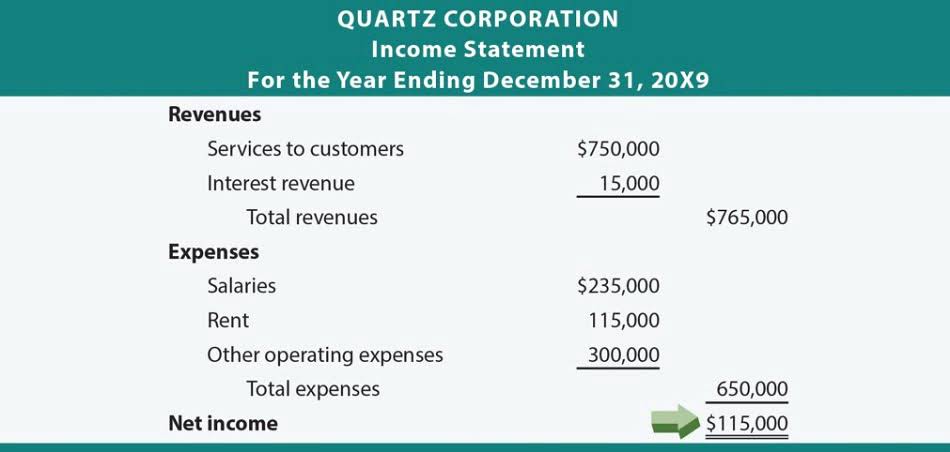
An accountant is in charge of assessing and interpreting the financial data of a company, and for reporting on it. An accountant has a higher skill set than a bookkeeper, whose primary responsibility is handling the actual recording of the company’s financial transactions. At a high-level, there are many career paths within the accounting field.
Of course, a background in accounting practices will help you ride out a learning curve as a new bookkeeper. It helps a business in the short and long term decision making and also conveys the credibility of a company to the market. Someone on our team will connect you with a financial professional in our network holding the correct designation and expertise. The articles and research support materials available on this site are educational and are not intended to be investment or tax advice. All such information is provided solely for convenience purposes only and all users thereof should be guided accordingly. If you are considering a future in accounting, you may be wondering which number-crunching career is right for you.
Which of these is most important for your financial advisor to have?
Some red flags that a business may no longer be a going concern are defaults on loans or a sequence of losses. Once an asset is recorded on the books, the value of that asset must remain at its historical cost, even if its value in the market changes. She believes this is a bargain and perceives the value to be more at $60,000 in the current market.
- According to the Bureau of Labor’s most recent statistics, bookkeeper salaries range from $29,120 to $61,980 annually.
- As a financial auditor, you may work as an external or internal auditor.
- Depending on the city, you can expect to earn between $40,000 and $60,000 your first year as a Big Four accountant.
- Even though the customer has not yet paid cash, there is a reasonable expectation that the customer will pay in the future.
- As with bookkeepers, the amount an accountant charges depends on their experience levels, the complexity of your accounting, and the state they live in.
That doesn’t mean that an accountant is the only way to get it done, however. As with any other profession, bookkeepers charge different amounts depending on their years of experience, what state they live and work in, and what industries they work for. On average, bookkeepers charge around $22 per hour in the U.S., but freelance bookkeepers may charge https://www.bookstime.com/articles/forming-a-corporation-advantages-and-disadvantages anywhere from $30 to $45 per hour. How much this adds up to for your business depends on how complicated your books are. Some bookkeepers do earn additional certifications or licensing from accrediting entities such as the American Institute of Professional Bookkeepers (AIPB) and the National Association of Certified Public Bookkeepers (NACPB).
Assets
Some of the key tasks for accountants include tax return preparation, conducting routine reviews of various financial statements, and performing account analysis. Another key responsibility for accountants includes conducting routine audits to ensure that statements and the books are following ethical and industry standards. While bookkeepers and accountants share some common goals and tasks, they support businesses in different ways and at different stages of the financial cycle. If you’re looking for small business loans, you’re going to find that lenders require a lot of financial paperwork, including bank statements, tax returns, balance sheets, and revenue statements. You will absolutely need at least basic bookkeeping to prepare these documents.
- Coming to Accounting-related activities, Accounting is a process that follows stringent guidelines to track, maintain, measure, analyze, identify, classify, and summarize the financial information of your business.
- A general accountant can still do quite a bit of accounting work for a business, but a CPA will be more qualified to handle higher level issues.
- Accountants are more specialized, so not every company has an in-house accountant.
- If you choose to work for a company internally instead of in public accounting, the starting salary range is very broad.
- In most cases, employers want to hire someone with a bachelor’s degree, and a master’s degree may help boost your earnings.
- This equation sets the foundation of double-entry accounting, also known as double-entry bookkeeping, and highlights the structure of the balance sheet.
Not only is it wise to know how well your company is doing overall, but it’s the only way to stay legally compliant with industry and tax laws. As you can imagine, there are quite a few differences between bookkeepers and accountants, including the level of education accounting and bookkeeping services for businesses each job requires. Accountants advise leadership on how to make more strategic financial changes that save the company money or generate more profit. For some of the businesses that they do, accountants also need to be registered certified public accountants (CPAs).